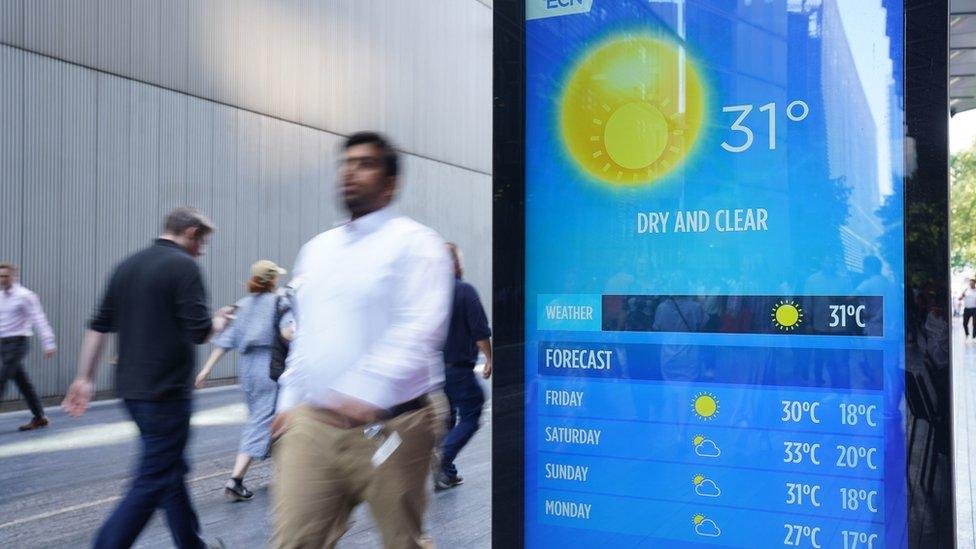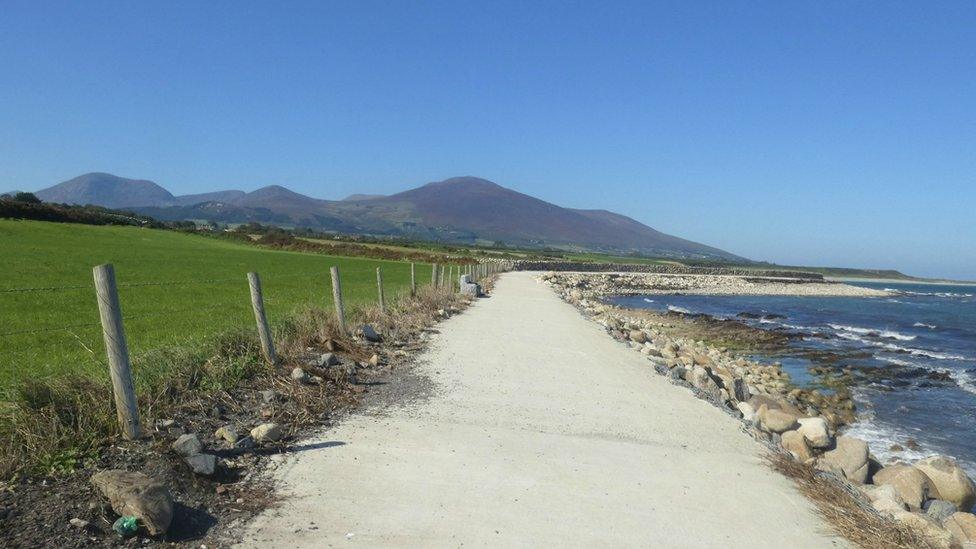UK heatwave: Hottest day recorded as thunderstorms warning in some areas
- Published

Saturday was the hottest day of the year, according to provisional figures from the Met Office.
A temperature of 32.7C (91F) was recorded at Heathrow Airport, making it the sixth day in a row that the heat had exceeded 30 degrees.
Thursday was previously the warmest day of 2023, with 32.6C recorded in Wisley, Surrey.
But Saturday may be the last hot day for parts of England and Wales, with a warning of possible thunderstorms.
A yellow Met Office weather warning for thunderstorms is in place on Sunday for most of Northern Ireland, parts of northern England and Wales, and parts of southern Scotland, from 14:00 BST to 23:59.
It comes as figures published by NHS England show there has been a fivefold increase in the number of people seeking advice about heat exhaustion over the past week.
The current heatwave is the longest run of 30C September days on record.
BBC Weather presenter Sarah Keith-Lucas said Sunday would be another very hot day, especially in the south, with temperatures of 32C possible.
Temperatures will cooler further north, with a chance of more widespread showers and thunderstorms later in the day, but southern and eastern parts should stay dry.
Cooler air will reach all parts of the UK through the early part of next week with showers in the forecast at times.
Heat exhaustion queries
Meanwhile, an amber heat-health warning issued by the UK Health Security Agency is in effect for nearly every area of England until 21:00 on Sunday.
This indicates that the effects of high temperatures could be felt across the whole health service.
Prolonged heat above 30C is a risk for older people and those with respiratory or cardiovascular diseases.
The rise in temperatures has led to a 552% increase in people visiting the NHS website for heat exhaustion advice, external.
There were 32,130 visits to the health advice page on heat exhaustion and heatstroke from Sunday to Thursday this week, according to figures released by NHS England, which runs the NHS website.
There were 4,928 visits made during the same period last week.
Heatwaves have become more frequent, more intense, and last longer because of human-induced climate change.
Last year the UK recorded temperatures above 40C for the first time. Scientists said that would have been "virtually impossible without climate change".
The world has already warmed by an average of 1.1C since the industrial era began and temperatures will keep rising unless governments around the world make steep cuts to greenhouse gas emissions.

If you have you been affected by the hot weather, you can share your tips and experiences by emailing: haveyoursay@bbc.co.uk, external.
Please include a contact number if you are willing to speak to a BBC journalist. You can also get in touch in the following ways:
WhatsApp: +44 7756 165803
Tweet: @BBC_HaveYourSay, external
Please read our terms & conditions and privacy policy
If you are reading this page and can't see the form you will need to visit the mobile version of the BBC website to submit your question or comment or you can email us at HaveYourSay@bbc.co.uk, external. Please include your name, age and location with any submission.
Related topics
- Published7 September 2023

- Published6 September 2023

- Published7 September 2023

- Published3 July 2023


